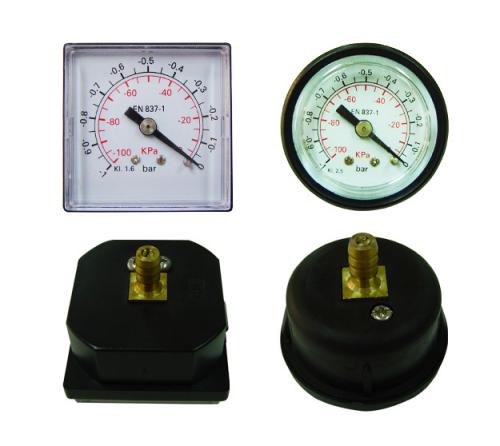Choosing the Right Sanitary Pressure Gauge for Your Industry Needs

Sanitary pressure gauges play a crucial role in various
industries, ensuring the safe and efficient operation of processes that involve
liquids, gases, or steam. These specialized pressure measurement instruments
are designed to maintain hygiene standards while accurately monitoring pressure
levels. Selecting the appropriate sanitary pressure gauge for your industry is
a critical decision that can impact safety, productivity, and regulatory
compliance.
Understanding Sanitary Pressure Gauges
Sanitary
pressure gauges are specifically designed to meet the stringent
requirements of industries that deal with sensitive processes, such as food and
beverage, pharmaceuticals, biotechnology, and cosmetics. Unlike traditional
pressure gauges, sanitary gauges are constructed using materials that are
resistant to corrosion and contamination. They are designed to minimize dead
spaces, crevices, and other areas where particles or microbes can accumulate,
making them easy to clean and sterilize.
Key Considerations for Choosing the Right Gauge
Material Compatibility: The choice of materials for a
sanitary pressure gauge is crucial to ensure compatibility with the process
media. Industries like food and beverage require gauges that are resistant to
chemicals used in cleaning and sterilization, while pharmaceutical processes
might demand gauges that can withstand aggressive chemicals and extreme temperatures.
Accuracy and Range: The accuracy of pressure measurement is
paramount in ensuring process control and safety. Choose a gauge with an
appropriate accuracy level for your application. Additionally, consider the
pressure range required for your processes, ensuring the gauge can handle both
normal and potential overpressure situations.
Hygiene and Cleanability: Sanitary pressure gauges should be
easy to clean and sterilize to prevent contamination. Look for gauges with
smooth, crevice-free surfaces that are resistant to buildup of product
residues, ensuring efficient cleaning procedures and reducing the risk of
cross-contamination.
Certifications and Regulatory Compliance: Depending on the
industry, certain certifications may be required, such as 3A, EHEDG, or ASME
BPE. These certifications ensure that the gauge meets specific industry
standards for hygiene and safety. Always ensure that the selected gauge
complies with the relevant regulations.
Process Connection: The connection type of the pressure gauge
should match the process system. Common connection types include threaded,
clamp, and weld connections. Proper connection ensures a secure fit and
minimizes the chances of leaks or contamination.
Vibration and Shock Resistance: Some industries, such as
biotechnology, pharmaceuticals, and food processing, may experience vibrations
or shocks that could affect gauge accuracy. Choose a gauge that is designed to
withstand these conditions without compromising performance.
Display and Accessibility: The gauge's display should be
easy to read and interpret, even in challenging environments. Some gauges come
with remote monitoring options, which can be advantageous in scenarios where
operators need to monitor pressure from a distance.
Maintenance and Serviceability: Opt for gauges that are easy
to disassemble, clean, and recalibrate. Regular maintenance is crucial to
ensure accurate and reliable measurements over time.
Conclusion
Choosing the right sanitary pressure gauge for your industry
is a decision that involves careful consideration of various factors. The gauge
you select can impact the overall efficiency, safety, and compliance of your
processes. By prioritizing material compatibility, accuracy, hygiene,
certifications, and other key aspects, you can ensure that your chosen pressure
gauge aligns with your industry's requirements and enhances the quality of your
operations. Remember, each industry has its unique demands, and collaborating
with experts in pressure instrumentation can provide invaluable insights to
help you make an informed decision.
In summary, the right Liquid Filled pressure Gauge
is not only an investment in precise pressure measurement but also an
investment in the success of your industry's processes. With the right gauge in
place, you can uphold high hygiene standards, adhere to regulatory guidelines,
and maintain efficient operations that contribute to the overall growth of your
industry.
Post Your Ad Here
Comments